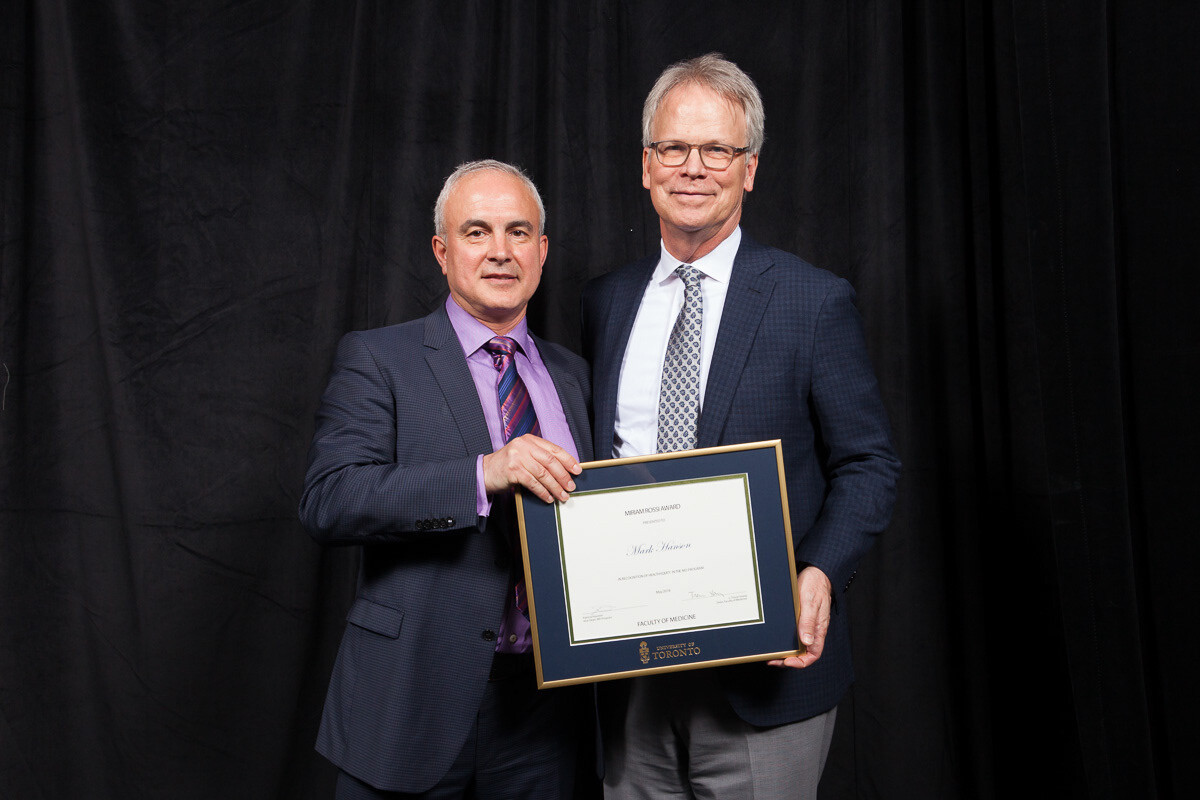Mobile Menu
-
MD Program
- Curriculum
- Interprofessional education
- MD Plus: Combined & Dual Degree Programs
- Academies
- Policies and Procedures
- Teaching in the MD Program
- Affiliated programs
- CACMS Accreditation
- Admissions
-
Student Resources
- Office of Learner Affairs (OLA)
- Community of Support
- Summer Mentorship Program
- Student Mistreatment
- Academic Calendar
- Incoming Students
- Resources for Indigenous Students
- Registration Requirements & Requests
- Research Opportunities
- Graduation & Alumni
- Student Tools & e-Resources
- Finances & Awards
- Student Assistance
- School Absences
- About Us
- MD/PhD Program

 Professor Melvin Silverman, the award’s first recipient, established the MD/PhD program at U of T — and the first and largest program of its kind in Canada — in 1984. First appointed to the Department of Medicine in1971, Silverman says the medical school culture at that time had focused on training physicians. By contrast, American Ivy League schools also had an objective to train future professors of medicine. Programs like these helped inspire the program at U of T and shifted the culture.
Professor Melvin Silverman, the award’s first recipient, established the MD/PhD program at U of T — and the first and largest program of its kind in Canada — in 1984. First appointed to the Department of Medicine in1971, Silverman says the medical school culture at that time had focused on training physicians. By contrast, American Ivy League schools also had an objective to train future professors of medicine. Programs like these helped inspire the program at U of T and shifted the culture. Professor Mark Hanson, the award’s inaugural recipient, has worked with groups who have difficulty accessing health care throughout his career. A child and adolescent psychiatrist and member of the Department of Psychiatry, Hanson says matters of privilege and access to care have always been an important focus of his work. That interest dovetailed with the initiatives he helped advance as Associate Dean, Undergraduate Admissions and Student Financial Aid.
Professor Mark Hanson, the award’s inaugural recipient, has worked with groups who have difficulty accessing health care throughout his career. A child and adolescent psychiatrist and member of the Department of Psychiatry, Hanson says matters of privilege and access to care have always been an important focus of his work. That interest dovetailed with the initiatives he helped advance as Associate Dean, Undergraduate Admissions and Student Financial Aid.